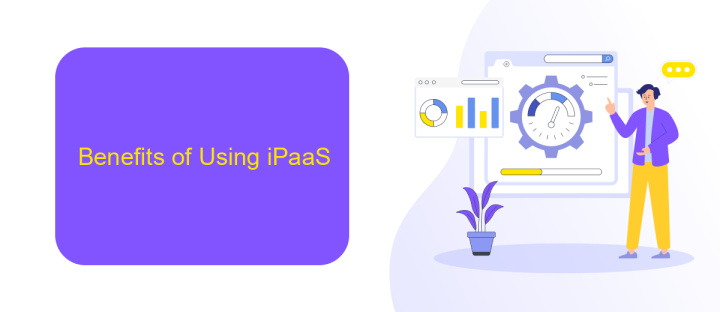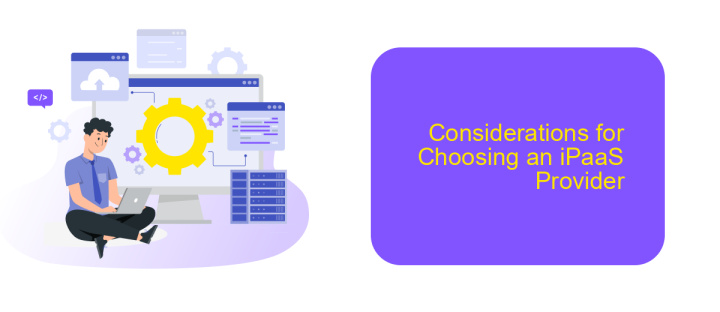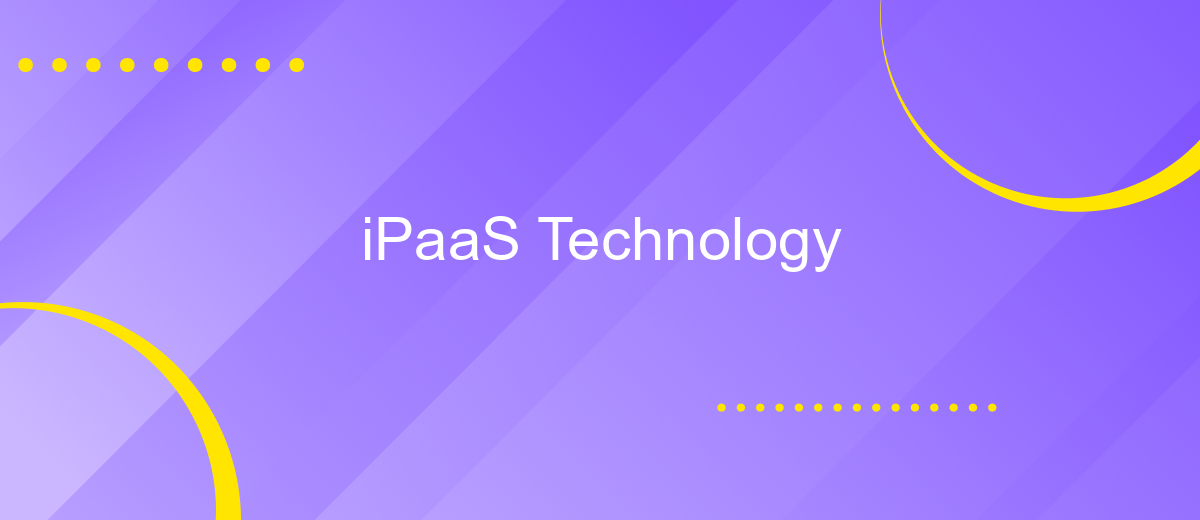iPaaS Technology
Integration Platform as a Service (iPaaS) is revolutionizing the way businesses connect disparate systems, applications, and data sources. By providing a cloud-based solution for seamless integration, iPaaS enables organizations to streamline workflows, enhance data accessibility, and improve overall operational efficiency. This article explores the key features, benefits, and future trends of iPaaS technology in today's digital landscape.
Introduction to iPaaS Technology
Integration Platform as a Service (iPaaS) is a cloud-based solution designed to simplify the integration of various applications and data sources within an organization. By leveraging iPaaS, businesses can streamline workflows, enhance data sharing, and improve overall operational efficiency without the need for extensive coding or complex middleware.
- Seamless integration of disparate systems
- Scalability to accommodate growing business needs
- Real-time data synchronization
- Enhanced security and compliance
One notable service in this domain is ApiX-Drive, which offers a user-friendly platform for setting up integrations between various applications and services. With ApiX-Drive, users can automate data transfers, synchronize information across platforms, and ensure that their systems work in harmony. This reduces manual effort and minimizes the risk of errors, ultimately leading to more efficient and effective business processes.
Benefits of Using iPaaS

Implementing iPaaS (Integration Platform as a Service) offers numerous benefits for businesses looking to streamline their operations. One of the primary advantages is the ability to integrate various applications and data sources seamlessly. This ensures that information flows smoothly across different systems, reducing the need for manual data entry and minimizing errors. With iPaaS, companies can automate workflows, enhancing efficiency and productivity. For example, services like ApiX-Drive provide user-friendly tools to set up integrations quickly, allowing businesses to connect their CRM, marketing platforms, and other software without extensive coding knowledge.
Another significant benefit of using iPaaS is its scalability and flexibility. As businesses grow, their integration needs evolve, and iPaaS can adapt to these changes without requiring substantial infrastructure investments. This cloud-based solution supports a wide range of applications and can handle increasing data volumes, making it ideal for businesses of all sizes. Additionally, iPaaS platforms often come with robust security features, ensuring that data is protected during transfer and storage. By leveraging iPaaS solutions, companies can focus more on their core activities while enjoying streamlined and secure data integration processes.
Types of iPaaS Solutions

Integration Platform as a Service (iPaaS) solutions come in various forms, each tailored to meet specific business needs. These solutions streamline the process of integrating various applications and data sources, ensuring seamless communication and data flow.
- Cloud-based iPaaS: These solutions are hosted on the cloud, providing scalability and flexibility. They are ideal for businesses looking to integrate multiple cloud applications without the need for extensive on-premise infrastructure.
- On-premise iPaaS: Designed for organizations that require data to remain within their own data centers, these solutions offer greater control and security but may lack the scalability of cloud-based options.
- Hybrid iPaaS: Combining the best of both worlds, hybrid iPaaS solutions enable businesses to integrate both cloud and on-premise applications, offering a balanced approach to integration.
- Specialized iPaaS: Tailored for specific industries or use cases, these solutions offer pre-built connectors and workflows, simplifying the integration process for niche applications.
One notable example of a cloud-based iPaaS is ApiX-Drive, which allows businesses to automate workflows and integrate various applications effortlessly. With its user-friendly interface and extensive library of connectors, ApiX-Drive makes it easy to set up and manage integrations, enhancing operational efficiency.
Considerations for Choosing an iPaaS Provider

When selecting an iPaaS provider, it is crucial to consider several factors to ensure the platform aligns with your business needs. First, evaluate the provider's integration capabilities. Ensure it supports the applications and systems your organization uses, both current and future.
Another key consideration is the ease of use. The platform should offer a user-friendly interface that allows for quick and efficient setup of integrations without requiring extensive technical knowledge. Services like ApiX-Drive can be particularly beneficial here, as they simplify the integration process with intuitive tools.
- Scalability: Can the platform grow with your business?
- Security: Does it comply with industry standards and regulations?
- Support: What level of customer service and technical support is available?
- Cost: Are the pricing plans flexible and suitable for your budget?
Lastly, consider the provider’s reputation and customer reviews. A reliable iPaaS provider should have positive feedback and a proven track record in delivering seamless integrations. Taking these factors into account will help you choose a platform that enhances your business operations effectively.
Future Trends and Innovations in iPaaS
The future of iPaaS technology is poised to be shaped by advancements in artificial intelligence and machine learning. These technologies will enable more intelligent data mapping, predictive analytics, and automated workflows, making integrations more efficient and reducing the need for manual intervention. Additionally, the rise of microservices architecture will allow for more granular and flexible integration solutions, catering to the specific needs of businesses across various industries.
Innovations in iPaaS will also focus on enhancing user experience by providing more intuitive and user-friendly interfaces. For instance, platforms like ApiX-Drive are already simplifying the integration process, allowing users to connect various applications without extensive technical knowledge. Future developments may include more robust security features and compliance with global data protection regulations, ensuring that data integrity and privacy are maintained. As businesses continue to adopt digital transformation strategies, iPaaS technology will play a crucial role in enabling seamless and scalable integrations.


FAQ
What is iPaaS technology?
How does iPaaS benefit businesses?
Can iPaaS be used for both cloud and on-premises systems?
How secure is iPaaS for handling sensitive data?
What kind of integrations can be automated using iPaaS?
Apix-Drive will help optimize business processes, save you from a lot of routine tasks and unnecessary costs for automation, attracting additional specialists. Try setting up a free test connection with ApiX-Drive and see for yourself. Now you have to think about where to invest the freed time and money!

